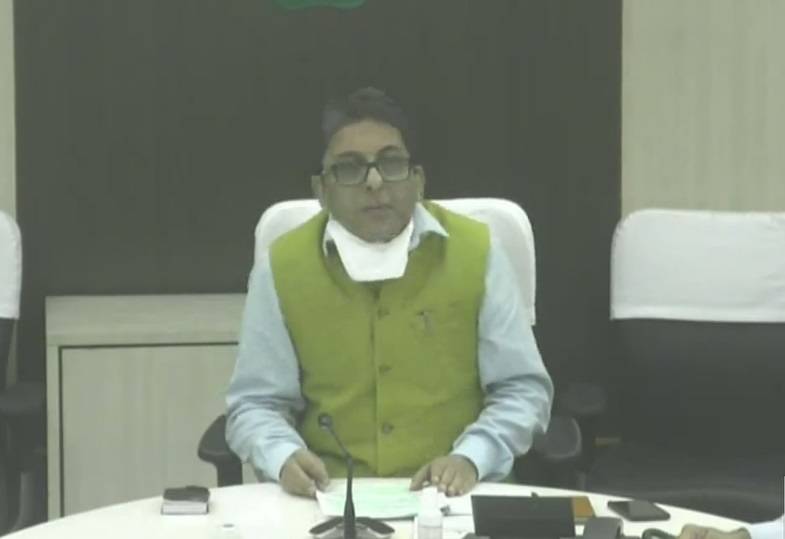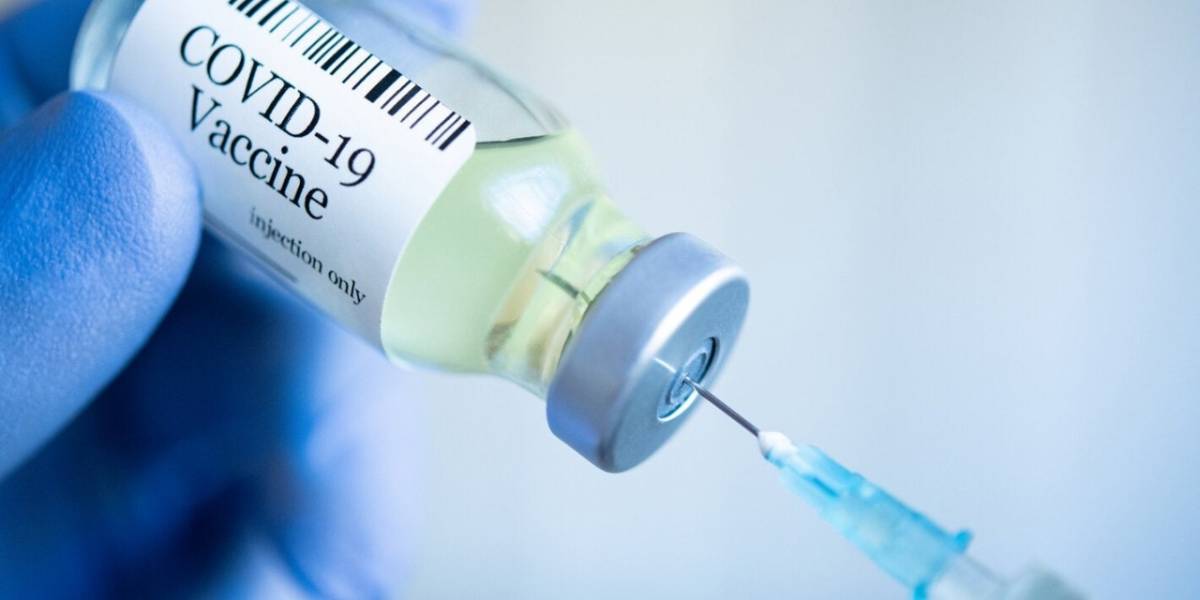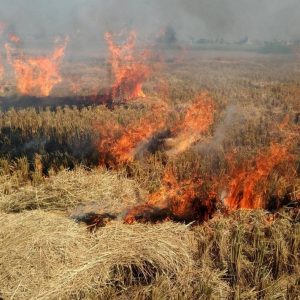Pandemic-triggered national lockdown during Q1FY21 had a massive impact on the economy, which suffered a GDP contraction of 24.4 per cent, reports Asian Lite News
The Covid-induced volatility heavily dented India’s economy in the last fiscal as its growth rate plunged (-) 7.3 per cent in FY 2020-21.
Though not comparable, the GDP had grown by 4 per cent in 2019-20.
Accordingly, the pandemic-triggered national lockdown (from late March 2020) during Q1FY21 had a massive impact on the economy, which suffered a GDP contraction of 24.4 per cent. It was only on June 1, 2020 that the partial unlock measures were implemented.
However, pent-up demand and gradual opening up of economic activities arrested any other economic pitfall.
Nonetheless, the devastating impact on consumer services, urban demand and rising commodity prices had more or less painted a grim economic picture for FY21.
The data furnished by the National Statistical Office (NSO) showed that real GDP or Gross Domestic Product at constant (2011-12) prices in 2020-21 attained a level of Rs 135.13 lakh crore, as against the ‘first revised estimate’ of GDP for the year 2019-20 of Rs 145.69 lakh crore.
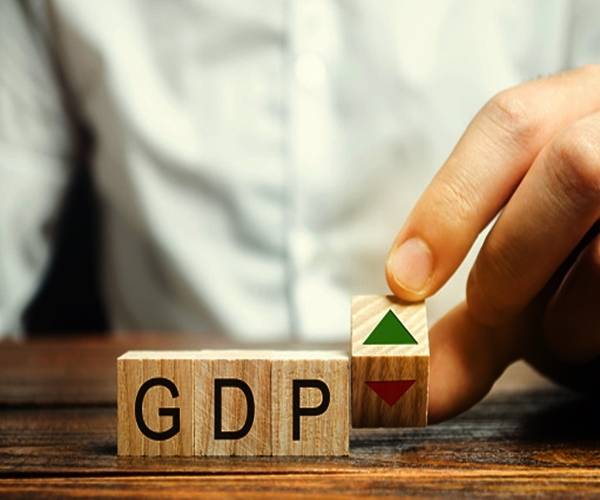
On the other hand, on sequential basis, India’s economy grew during the fourth quarter, which ended on March 31, 2021, by 1.6 per cent.
“GDP at Constant (2011-12) Prices in Q4′ of 2020-21 is estimated at Rs 38.96 lakh crore, as against Rs 38.33 lakh crore in Q4 of 2019-20, showing a growth of 1.6 per cent,” according to the GDP estimates released by the Central Statistics Office (CSO).
Besides, the CSO said: “There was a sharp spike from Rs 2.27 lakh crore in BE 2020-21 to Rs 5.95 lakh crore in the revised Estimates for the major subsidies (especially food subsidies) of Centre, presented in Budget 2021-22, in RE 2020-21.”
“Revised provision of subsidies of Centre has been considered after adjusting for arrears of previous years and repayment or prepayment of loans, as per information received from Ministry of Finance,” it said.
In terms of quarterly Gross Value Added (GVA), the NSO data showed a year-on-year rise of 3.7 per cent from 1 per cent in Q3FY21. The GVA includes taxes, but excludes subsidies.
ALSO READ: French Cos promise support in India’s Covid fight
On a sequential basis, Q4 GVA for 2020-21 from the agriculture, forestry and fishing sectors grew 3.1 per cent, against 4.5 per cent in the preceding quarter of 2020-21.
The GVA from the manufacturing sector grew 6.9 per cent, as compared to a growth of 1.7 per cent in Q3FY21.
Furthermore, mining and quarrying contracted (-)5.7 per cent from (-)4.4 per cent in Q3FY21, while construction activity plunged by 14.5 per cent from 6.5 per cent.
The GVA growth rate of ‘electricity, gas, water supply & other utility services’, ‘trade, hotels, transport, communication and services related to broadcasting’ and ‘public administration, defence and other services’ also increased during this period.
Another key growth gauge — Gross Fixed Capital Formation — which underscores the overall acquisition of produced assets in the economy, is estimated to have declined to 10.8 per cent in FY21 at constant (2011-2012) prices.
On yearly basis, the only component that showed growth in FY21 is the government’s final consumption expenditure which grew at 2.9 per cent.
The other major components, namely private final consumption expenditure (PFCE), contracted by 9.1 per cent in FY21.
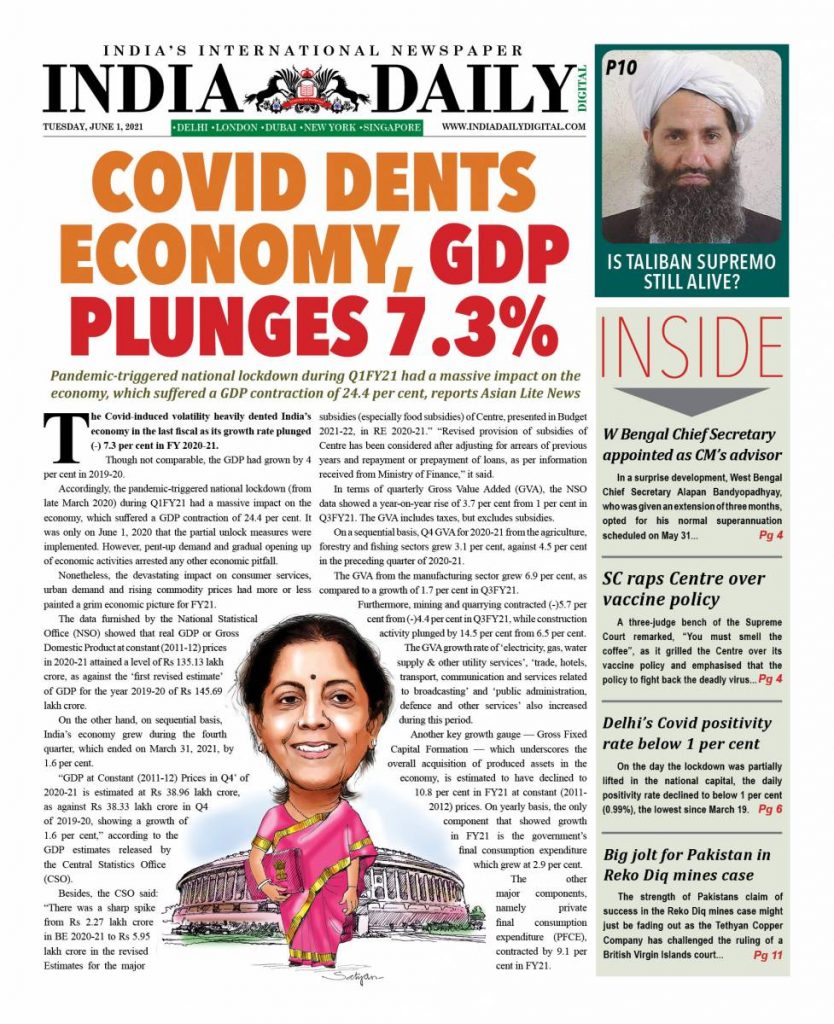
“Benefitting from the broad-based surge in volumes, India’s economic growth improved in Q4 FY2021, although the impact of the low base related to the onset of the nationwide lockdown can’t be written off,” said Aditi Nayar, Chief Economist, ICRA.
“Nevertheless, as expected, the Indian economy firmly averted the double dip contraction that had been insinuated by the previously released advance estimates for FY2021,” Nayar said.
According to Sunil Kumar Sinha, Principal Economist, India Ratings & Research: “On the supply side, agriculture, as expected, grew at a robust 3.6 per cent in 4QFY21 and 3.6 per cent in FY21. However, the more heartening numbers came from the industrial sector which though contracted by 7 per cent in FY21, its various segments, except mining, witnessed accelerated growth momentum in 4QFY21.
“We must not, however, overlook the fact that a large part of the turnaround witnessed in 3QFY22 and 4QFY22 will get a push back in 1QFY22 due to the second wave of Covid, but the YoY numbers may still look good due to extremely low base of 1QFY21.”
Suman Chowdhury, Chief Analytical Officer, Acuite Ratings & Research: “As expected, agriculture has recorded a healthy GVA growth of 3.6 per cent in FY21 with all the other industrial and service sectors witnessing significant contraction under the severe impact of Covid.
“Contact intensive activities such as trade, hotels and transports have recorded a deep contraction of 18.2 per cent given the disruptions and the demand disruption created by the pandemic.”
ALSO READ: India needs to make fast moves in Africa






